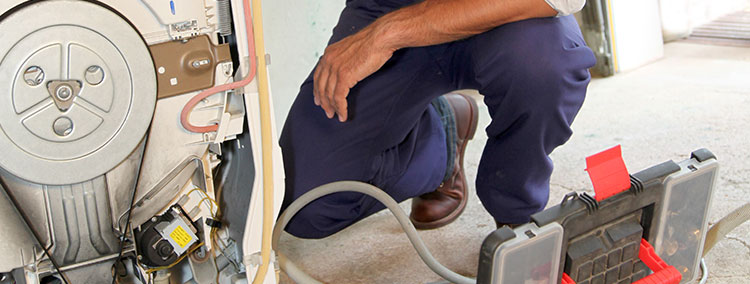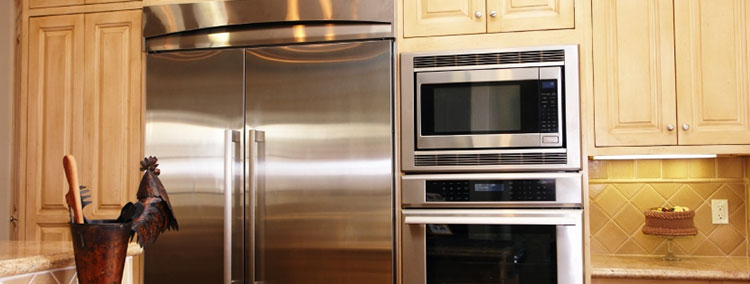Would you like to keep your home appliances in top condition most of the time? Here are tips given by appliance repair professionals that will help you do that:
Don’t pre-rinse your dishes. Let the dishwasher run.
It’s time to forget everything your parents taught you about cleaning up after dinner. One of the hardest habits to break for most people growing up in the 1970s and 1980s is not to fully rinse off dishes.
For most people growing up at the time, mothers’ dishes were spotless by the time they went into the dishwasher. This was often because the dishwashers at that time weren’t as efficient as they are now.
Washers today are highly effective and use just a little water.
How little? Three and a half gallons or less is enough
Modern dishwashers are capable of removing dried food off plates, so you can wait until the machine is full before running it. Scraping is sufficient. You don’t need to pre-rinse the dishes. Simply make room for water sprayers to reach each dish.
What if there are only a few dishes to wash? You might have the impression that doing them by hand is less wasteful, but data suggests otherwise, even if you run a half-empty dishwasher.
A peer-reviewed study sponsored by Whirlpool on the amount of water and energy required to wash dishes by hand or machine found that running the tap to wash a plate, cup, bowl, cutlery, and some service items) used approximately 3 gallons.
That indicates that operating the dishwasher for only two people uses less water than washing dishes in the sink, providing no pre-rinsing is done.
Dishwashers produce less than half the greenhouse gas emissions of hand-washing dishes, owing mostly to the fact that they heat less water.
At full capacity, a dishwasher uses less than half a gallon in each setting.
The only way to fight this by hand is to wash and rinse in two basins instead of letting the water run, as most people do.
Unfortunately, this will not save you time. The EPA estimates that hand-washing a household’s dishes for a year takes around 230 hours, similar to a 10-day vacation.
How do the appliances do this? Dishwashers’ light sensors monitor the cloudiness of the water as it drains and regulate the water to guarantee the dishes are clean without wasting it. The whole point is that the appliances do the hard work for you.
Set the refrigerator thermostat and forget about it
The refrigerator was long considered the most energy-hungry appliance in the family home. Today, it is among the most cost-effective.
According to a 2010 World Economic Forum research, refrigerators’ energy consumption has fallen by three-fourths since 1972, despite their increased internal volume. Those stats appear even better today, thanks to improved compressors, coolants, and insulation.
Even with this information, many individuals ignore manufacturer guidelines and set temperatures too low. You should note that colder isn’t necessarily better.
Decades of advancements in insulation, air sealing, and ventilation ensure that suggested temperatures — often between 37 and 40 degrees Fahrenheit can store food the longest without wasting energy or causing frostbite.
Simply set the right temperature and organize your food such that it is easy to find and difficult to forget.
The largest mistake you can make is storing refrigerators past their expiration dates. If you have an old model in your (hot) garage or basement, especially if you’re one of the people with a second refrigerator, get rid of it.
In most cases, you pay more for electricity than you could save by updating it.
Invest in a smart thermostat.
You may have heard that setting your thermostat to a specific temperature reduces heating and cooling costs. It does not, especially if you have to keep changing the settings.
Installing smart thermostats that learn your tastes and behaviors allows you to set an effective heating and cooling schedule while saving money each year.
The smart thermostats employ home WiFi, smartphone apps, or motion sensors to detect when people are home and modify temperatures accordingly, as well as during the day.
Homes with heat pumps are an exception. Modern high-performance heat pumps perform best while maintaining a consistently comfortable temperature and are less efficient when attempting to heat a cold environment.
They can provide energy savings without requiring thermostat adjustments in the evening or when you get up. Don’t touch the thermostat when you have a heat pump in your home.
Replace the old appliances.
If your machine is 15 or 20 years old, replacing it will save you money and reduce emissions. Even today’s low-cost dishwashers outperform high-end appliances from a decade ago.
Pushing appliances beyond their projected lifetime only delays their replacement, wasting money and energy.
While this is the case, manufacturers say that we may be entering an era in which appliances reach their peak efficiency. At that point, we’ll rely on software updates rather than new hardware to enhance things.
Appliances are getting about as efficient as they can be. There are projections that it will get to the point where manufacturers will be helping consumers prolong the life of their products.
While this is a probability, we are yet to get there. If your appliance is old, you should simply replace it. A telltale sign that your unit is old is if it consumes too much energy.
You should also consider replacing your unit if it keeps breaking down, and you have to keep hiring commercial appliance repair Alexandria professionals.
When buying a new unit, get a high-quality one that will withstand the test of time. The appliance should have a high energy rating which gives you peace of mind that it won’t hike your energy bills.

